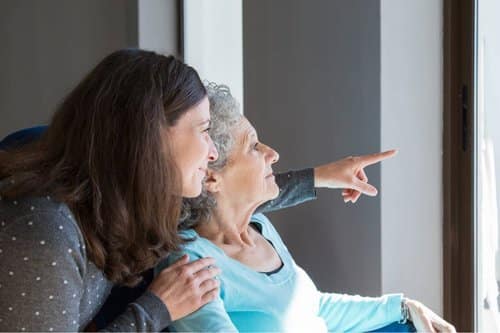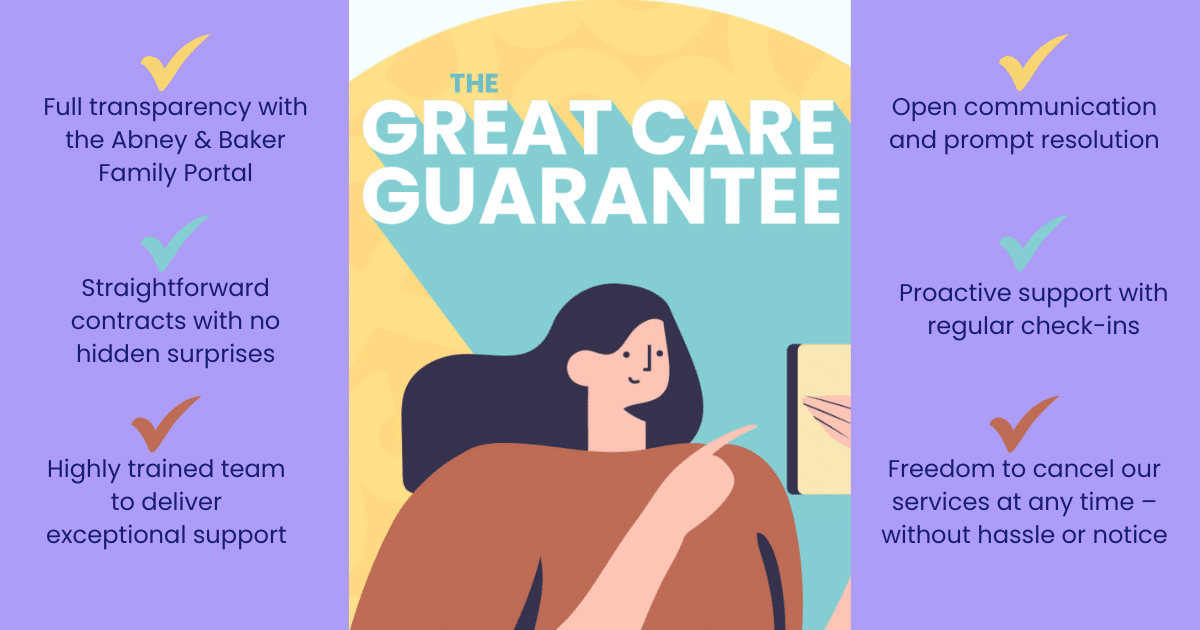What is sundowning?
Sundowners
Sundown Syndrome
What triggers sundowning?

There are a few things that can trigger sundowning. These appear most significant when changes in the person’s environment happen, such as moving to a new home environment or changing caregivers.
Fatigue and anxiety can also contribute to sundown syndrome symptoms. It’s important to try to create a calm and predictable environment for the person with dementia, to avoid overwhelming them with too many changes or stressors.
Whatever the cause, sundowning can be frustrating for caregivers and loved ones. It can be difficult to deal with sudden changes in mood and behaviour, not to mention the added stress of trying to get a confused person through the night.
Sundowning symptoms and what they are?
Some of the most common symptoms of sundowning dementia include:
- Confusion
- Disorientation
- Agitation
- Hallucinations
- Pacing
- Wandering

It’s important to remember that each person with their type of dementia will experience these symptoms in their own unique way. Some symptoms may be more pronounced than others, and may vary from day to day and also time of day.
If you are caring for a ‘sundowner’, it’s important to be prepared for these changes. Be patient and understanding, and keep a close eye on them.
How to help with sundowning dementia
There are things caregivers can do to help mitigate the effects of sundowning dementia. First and foremost, it is important to create a calm and relaxing environment for the person with sundown dementia. This may mean keeping noise levels low and avoiding busy or hectic environments. It is also important to ensure that the person has plenty of opportunities for rest and relaxation during the day.
In addition, caregivers should try to keep a regular routine as much as possible. This can help reduce feelings of confusion and anxiety. It’s advisable for home carers to always communicate with each other to ensure that everyone is on the same page when it comes to caring for a person who experiences sundowning dementia.
The Alzheimer’s Society is a great place to start. The Alzheimer’s Association has some useful blog pieces, support and resources – Click here for one on sundowning.
How to introduce a daily routine for sundowning dementia
Caregivers can help the individual by introducing a daily routine. This includes regular mealtimes, set bedtimes, and plenty of structure and activities throughout the day.
This stage can be difficult for caregivers to manage, as it often disrupts the normal flow of the household. However, there are ways to help make things easier.

One key is to establish regular mealtimes and stick to them as closely as possible. Mealtimes provide a sense of predictability and can help ease agitation. It’s also important to set bedtimes and stick to them as closely as possible. This can help provide a sense of structure and routine for those struggling.
In addition, home carers should try to provide plenty of activities throughout the day. This can help keep people’s minds active and distracted from any memory problems they may be experiencing. Taking walks, playing games, or watching television can all be helpful.
Lastly, it’s important to remain calm and patient when dealing with someone who is sundowning. Getting angry or frustrated will only worsen things. By following these tips, care assistants can help make evening hours easier for those with sundowning dementia.
Managing sundowning in the home environment
Tips include:
- Lighting, noise levels, and a relaxed environment.
- Ensure the home is well-lit, with bright lighting in most used areas.
- Remove any distractions or clutter from frequently used areas.
- Establish a specific routine for evening activities, such as winding down before bedtime.
- Make sure all medications are taken as prescribed, and that all necessary safety precautions are in place.
- Seek support from friends, family, or professional caregivers as needed.
- Contact a doctor or other healthcare professional if sundowning becomes severe or unmanageable.
How homecare services help for sundowning dementia

To help someone with their sundowning, a loved one may look for help with a home care services team, who can help keep their loved one on track with a care plan and medications. It’s important to work together to figure out what’s best for the loved one.
Home care services help with help at home, like laundry and grocery shopping, domiciliary care, and more in-depth assistance with personal care.
A homecare service team will provide companionship and respite care, which is crucial for those with sundowning dementia. If a relative feels overwhelmed or struggling to manage, they may consider reaching out for help. There are many resources available, and it’s better for everyone if they decide to get help sooner rather than later.
Where to get help for sundowning dementia
If someone is experiencing sundowning dementia, there are treatments available that can help make the condition more manageable. Getting help, care and support is incredible important.
To find out more, contact Abney & Baker for their home care services. We can provide you with more information and help you create a treatment plan that works around the individual’s specific needs.
Helping your loved one to continue living independently and confidently in their own home.
By providing a range of support at home, we’re helping many clients across Bath & North East Somerset and West Wiltshire retain their independence and stay in control in the comfort of their own homes.
Remember we’re always here if you want to chat about your care options. Just get in touch:
Call 0333 043 4880 – Email enquiries@abneyandbaker.com – Book a call here














